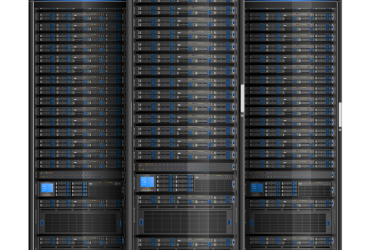INTRODUCTION
When a WordPress website is hacked, often times, people are quick to put the blame on the web hosting company or web host server type. While it is true that the type of web hosting server you choose has an effect on the website security, outdated plugins and themes threaten the security of your website too most times!
A web host could be a service supplier that enables you to place your website on a server that is connected to the web. This gives those who surf the web a way to access your web site. All web hosting plans have some basic common features and one of the crucial feature you should always consider is its support for your website security.
Different Kinds of Web Hosting Server
Of course, we have like 4 or more types of web hosting servers but we will focus more on just 2 for now – Shared hosting and Managed hosting.
SHARED HOSTING
Just as the name may hint, shared hosting simply means web account that is shared on a server with many web hosting accounts. You can guess well that shared hosting will be easily prone to website attackers because you get to share resources like bandwidth, hardware, connection, database, etc on one server.
MANAGED HOSTING
In a managed hosting, you get you own server; the only difference is that you do not have full control over it. This way service suppliers prevent users from doubtless ever-changing configuration or modifying the server. But no need to worry, you can still maintain all your data. A managed hosting is quite to a Dedicated hosting, however, a Dedicated hosting is more expensive.
Website Security
You’ll notice that the majority hosts don’t observe security. It’s not therefore secure if you tell everybody what you’re doing. But one smart sign is if a host brags concerning their security, they need one thing to measure up to, so check out reviews to see what others have said about their security.
In addition to reviews, what are other ways to understand if a host is secure? Look for network firewalls, access lists, intrusion barrier systems and also, server firewalls. Basically, you would like to examine multiple layers of security protecting your site. Also, make sure they’re changing server patches in an exceedingly timely manner.
SQL injection could be a milestone within the history of web security; it 1st appeared in about 1999 and quickly became a major threat to net security. Programmers worked exhausting to amend the loopholes within the system and to contain the attacks, as otherwise hackers will access necessary and sensitive knowledge through SQL injection attacks and can even access the system through the database. SQL injection attack is as effective, if not higher, than a direct attack, which makes it popular with hackers.
XSS (cross-site scripting) attack is another milestone within the history of net security. In fact, XSS and SQL injection appeared nearly at identical time, but the former came into prominence only in about 2003. After the MySpace XSS worm incident, the web site security community took cognition of the wide threat posed by XSS; it even made it to the top of the OWASP 2007 Top 10 threats.
Let’s see how a Shared Hosting Affect Your Website Security
A shared hosting provider does only elementary security checks which only looks for existing malicious software. They only search for existing patterns and signatures of existing malwares and this makes incapable of finding recent and complex malwares on a WordPress website.
Because of the multiple websites that are usually being hosted on a Shared Hosting, it always have an Easily Breached Security. Hence, when one of the hosted websites on the server is compromised or hacked, other websites on same server are also affected. In other words, because you share the same server with an affected website, you would have to the same security breach risk and suffer similar problem. You would be required to spend extra money and time to clean up your website, though your site was not initially compromised.
Your log records could become corrupted or inevitably affected since they are not properly managed on a Shared Hosting unlike a Managed Hosting.
Poor Backups
Let’s see how a Managed Hosting Affect Your Website Security
Of course, like a Dedicated Hosting, Managed hosting is more expensive than the Shared Hosting but its worthwhile with its amazing features! They treat security with a very good concentration as they offer a standard security than the Shared Hosting, and this keeps hackers stay far and hope-lost.
A very good Firewall Protection
Accurate (old and new) Malware scanning
It Restricts access to core files
More Hosting Wisdom
Picking an honest host is over checking off an inventory of options, so explore the company and their services thoroughly to know what you’re getting.
Uptime Guarantees: What type of uptime guarantees can the host offer? 99.9% sounds nice, but that still allows for eight hours of downtime per year. Can your business handle that? For many tiny businesses that’s associate annoyance, but for other businesses, that can be a deal breaker.
You should additionally raise what happens if your host can’t live up to their guarantee. If they shut down operation and their server crashes, can you get a refund? If you’re extremely involved concerning downtime, you should also ask about their disaster planning. Things like earthquakes, tsunamis and even thunderstorms happen and they’ve been proverbial to require down websites. Your host should be prepared for the worst.
A Chip: In a Shared Hosting environment providing hosting services, in order to prevent the user code from damaging the system environment or prevent the code from different users from affecting one another, a Sandbox ought to be used for analytic user codes in PHP, Python, Java, and the like. Sandbox must take into account potential requests from user code in terms of the native classification system, memory, databases, and networks. To achieve this, you’ll be able to use the default deny policy or encapsulate the API.
 Maintaining a Good Website Security
Maintaining a Good Website Security





Comments (0)